Sustainability Projects
Waste Managament
Year 2022
Waste and Hazardous Waste Management
EGCO ECOSYSTEM: A Comprehensive End-to-End Waste Management Program
Waste generation in Thailand is expected to continue increasing every year, resulting in a wide array of environmental impacts, including ocean pollution and marine debris from residual waste buildup and garbage leakage into the sea.
In response to the issue, EGCO Group initiated the “EGCO Ecosystem,” a comprehensive end-to-end waste management program within the organization that has been ongoing since 2020. An embodiment of EGCO Group’s environmental philosophy, the program aims to promote waste management best practices, such as source reduction, and raise awareness among employees to educate and motivate them in practicing selective waste sorting. We hold environmental stewardship in high regard, as we strive to decarbonize our business, accelerate the transition to a low-carbon society, and ultimately the creation of a sustainable world.
The EGCO Ecosystem emphasizes the application of the following waste management principles:
- 3Rs: “Reduce, Reuse, and Recycle,” which means minimizing the amount of waste generated (reduce), using items more than once (reuse), and converting waste to be used again (recycle)
- Promote systematic waste management through efficient and effective sorting, storage, transportation, and disposal to curtail impact on the environment.


We further expanded the scope of the EGCO Ecosystem from an internal corporate initiative to a community-wide joint effort through the “Vibhavadi Zero Waste Phases 1 and 2” project, led by the Securities and Exchange Commission (SEC). We have also provided support and education on waste sorting practices to the local communities of Wat Chonprathan Rangsarit, Phra Aram Luang. Our efforts included setting up multiple waste stations with different bins to separate general, liquid, recycle, and hazardous waste materials at various locations throughout temple grounds and partnering with the digital platform “GEPP Sa-Ard,” which specializes in source reduction, to present on waste management to the monks, those involved with the temple’s management of waste, and people who come to make merit. Through our efforts, we aim to drive more efficient and effective waste management practices within the temple.
Given our continuous commitment to and the performance of EGCO Ecosystem and our waste management operations, we received the “Asia Responsible Enterprise Awards 2022” in the category “Green Leadership” from Enterprise Asia for the second consecutive year. The award recognizes leading organizations in the private sector that exemplify and promote entrepreneurial potential with responsibility towards society and the environment. In addition, we have received the “Low Carbon Business: Waste Management Award” for our efforts in the “Vibhavadi Zero Waste” project.
Benefits of the Project
- Promoted knowledge and understanding of waste management practices in the corporate sector and community.
- Established a strong collaborative network between EGCO Group and partner organizations.
- Developed and materialized the organizational waste management model and strategies.
- Reduced environmental impact and promote the transition to a low-carbon society.
Implementation Approach
- Emphasize source reduction in managing waste.
- Adhere to the 3R principles “Reduce, Reuse, Recycle”.
- Promote systematic waste management through efficient and effective sorting, storage, transportation, and disposal of waste.


2022 Performance
Khanom Power Plant Compost Project
Given the success of the EGCO Ecosystem project in driving organizational waste management, particularly by promoting source reduction and employee engagement in selective waste sorting behaviors, Khanom Power Plant initiated its own compost project to transform waste into natural fertilizer. The project kicked off in January 2022 and aims to convert organic waste materials, such as leaves and grasses, found in the power plant’s vicinity into compost for its own use. Through this effort, Khanom Power Plant was able to produce over 8,000 kilograms of usable compost, significantly decreasing the reliance and usage of chemical and synthetic fertilizers.

Benefits of the Project
- Reduced landfill waste
- Utilized organic waste from the power plant and surrounding areas to produce compost fertilizer.
- Reduced the use of chemical fertilizers within the power plant’s vicinity.
Implementation Approach
- Make compost fertilizer for the power plant’s own use from leaves and cut grass found within the plant and its vicinity.


2022 Performance
Waste Recycling Project in Quezon (QPL) and San Buenaventura (SBPL) Power Plants
Waste Management at Quezon Power Plant (QPL) and San Buenaventura Power Plant (SBPL) takes a cradle-to-grave approach to avoid disposing of waste at landfills, including source reduction, sorting and recycling, and coordinating return or buy-back arrangements with contractors.
Waste management efforts at QPL and SBPL include the following:
- Recycling or reusing materials and items, such as packaging, conveyor belts, and scrap metal parts
- Donating used wooden materials, such as pallets, wood pieces, or branches to be used as fuelwood or in charcoal production.
- Donating food waste to be used as animal feed and organic waste to make compost fertilizer.
- Recycling hazardous waste, such as Waste from Electrical and Electronic Equipment (WEEE), used oils and vegetable oils, oily sludge, greases, fat residues, and empty chemical containers.

Benefits of the Project
- Reduced landfill disposal of hazardous waste and garbage
- Reduced landfill greenhouse gas emissions that would have resulted
Implementation Approach
- Deliver waste to recycling facilities suitable for the respective type of waste.

2022 Performance
Fly Ash Recycling Project in Quezon (QPL) and San Buenaventura (SBPL) Power Plants
Quezon Power Plant (QPL) and San Buenaventura Power Plant (SBPL) implemented the Fly Ash recycling project, where combustion residual and ash particulates occurring within the power plants are sent to Pozzolanic Philippines Inc. (PPI) to be used in the production of cement or other construction materials. In 2022, QPL and SBPL’s fly ash recycling rates were 98.02% and 98.57%, respectively.
Benefits of the Project
- Reduced the amount of fly ash produced and landfill greenhouse gas emissions that would have resulted.
Implementation Approach
- Recycle fly ash into raw materials to be used in the production of cement or other construction materials


2022 Performance
Year 2021
EGCO Ecosystem – EGCO Group Waste Separation
EGCO Group believes that running the business and environmental concerns wherever it operates will contribute to overall sustainability. This project was initiated by “employees” through the “EGCO Ecosystem” project or internal waste separation project, which started in 2020 to raise awareness and encourage employees within the organization to separate waste correctly. This will lead to the formation of good behavior further.
4 types of waste are sorted out as follows:

In 2021, the EGCO Headquarters Building had a total recycled waste volume of 3,076.63 kilograms and an overall recycling rate of 60% (proportion in January - July 2021). This can reduce greenhouse gas emissions by 10.098 tons CO2 equivalent (data As of August 31, 2021). The EGCO Ecosystem project has received a certificate and certification from the Greenhouse Gas Management Organization (Public Organization) with satisfactory results.
To expand the results to the broader society, EGCO Group has also joined forces with the "Vibhavadi Zero Waste" project of the Securities and Exchange Commission. This is the beginning of building a circular economy.
Ash Management at Roi Et Green Power Plant
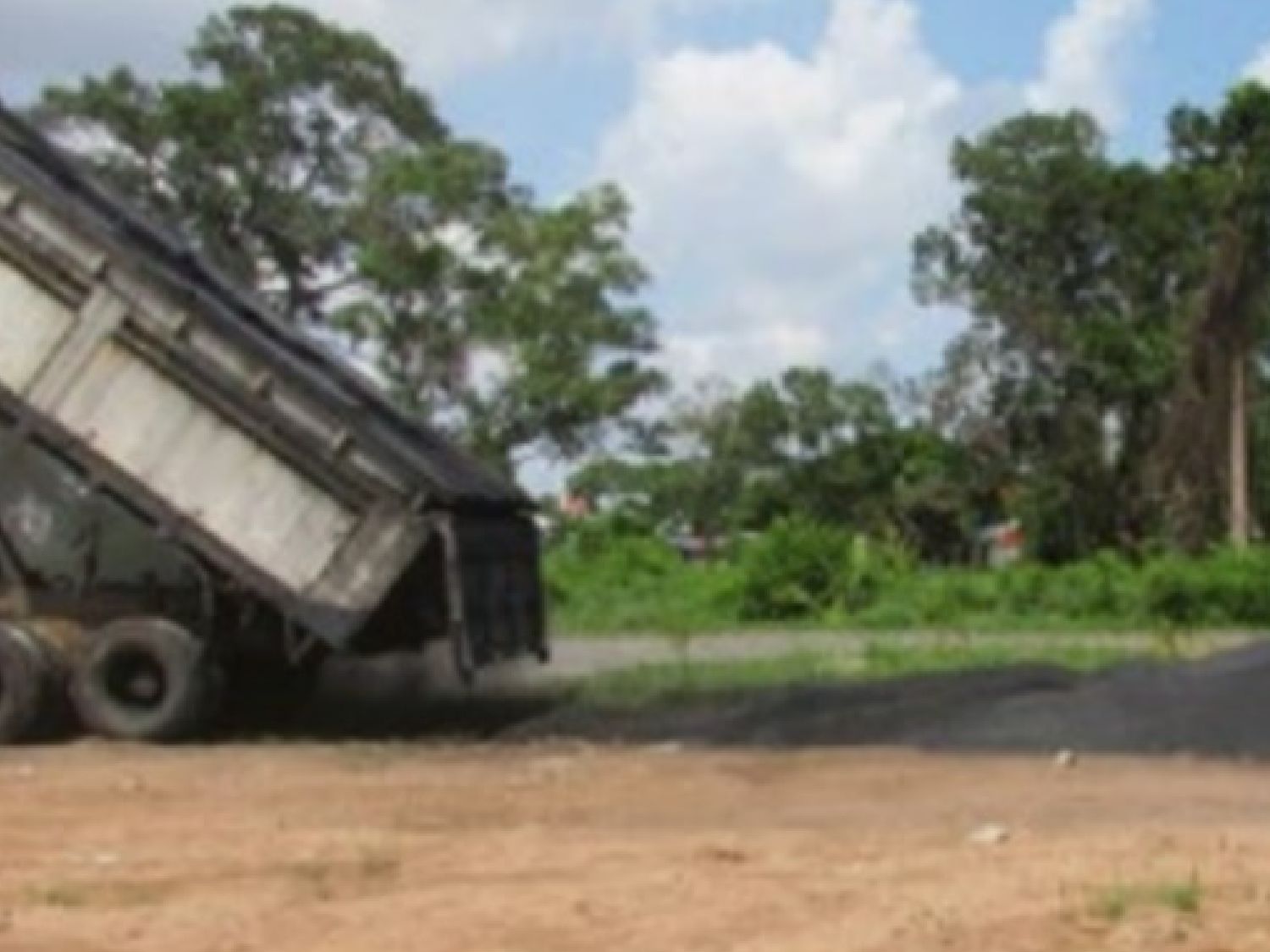
Roi Et Green Power Plant is a biomass power plant using rice husk as fuel. Rice husk ash from the combustion was tested by Department of Industrial Works and proved that it does not contain hazardous material.
Roi Et Green Power Plant therefore collects and transports the fly ash and bottom ash to ash storage room via a conveyor before loading to a modified truck provided with 4-side closed container for selling or giving the ashes to nearby farmers for making fertilizer or soil improvement. During transportation, the container is well covered and sprayed with water to reduce ash dispersion.
In 2021, the ash quantity of Roi Et Green Power Plant was 13,144.33 tons, of which, 45% was sold to be used for agricultural purpose, while the rest was distributed to government agencies and farmers.
Quezon Power Plant Ash Management
Quezon Power Plant uses high-quality coal and Pulverized Coal Technology production process so that the fly ash and heavy ash produced by combustion which non-toxic.
Quezon Power Plant operates a recycling program in cooperation with Pozzolanic Philippines, Inc. to recycle fly ash as a raw material for cement production. and heavy ash to be recycled to fill roads with the Philippine Department of Public Works and Highways.
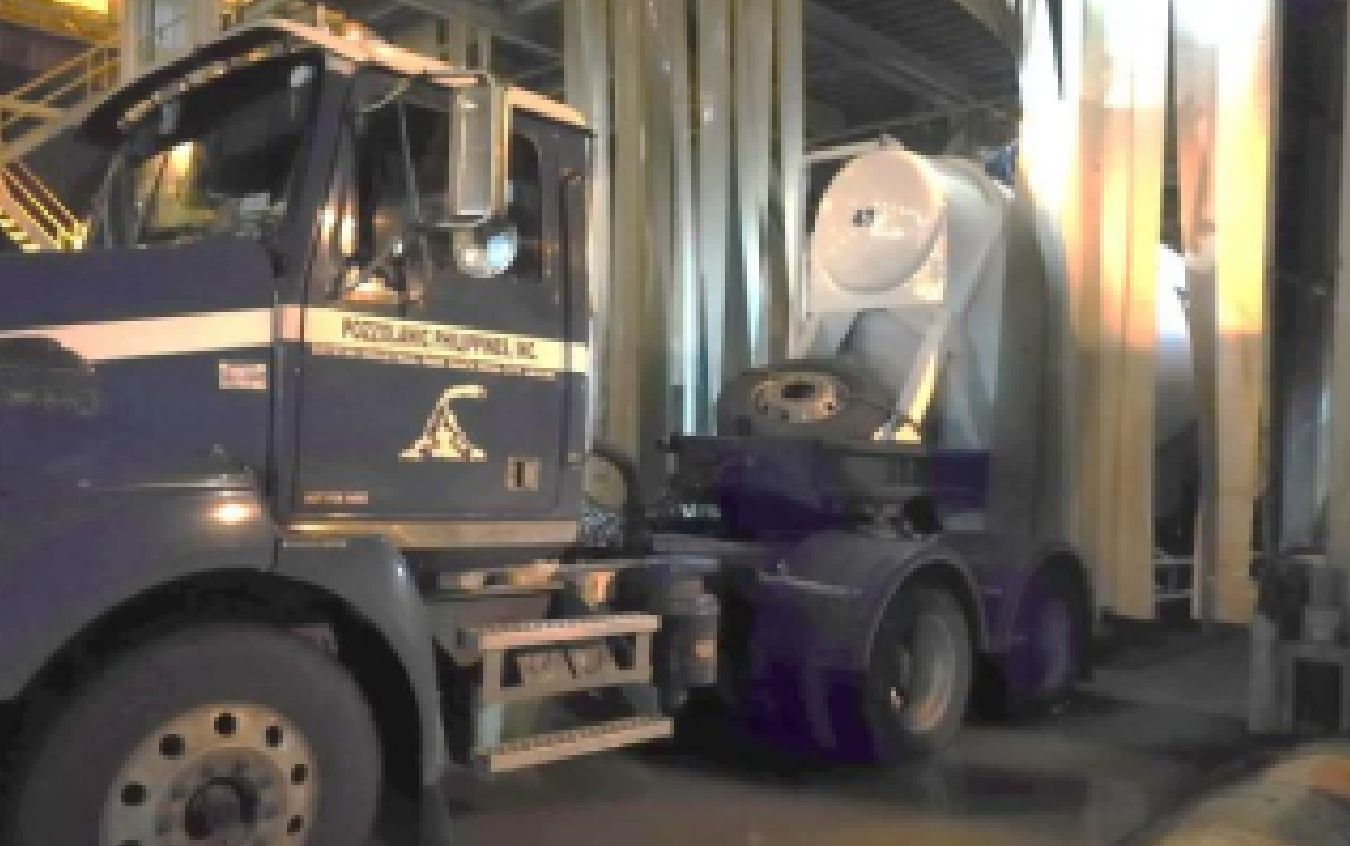
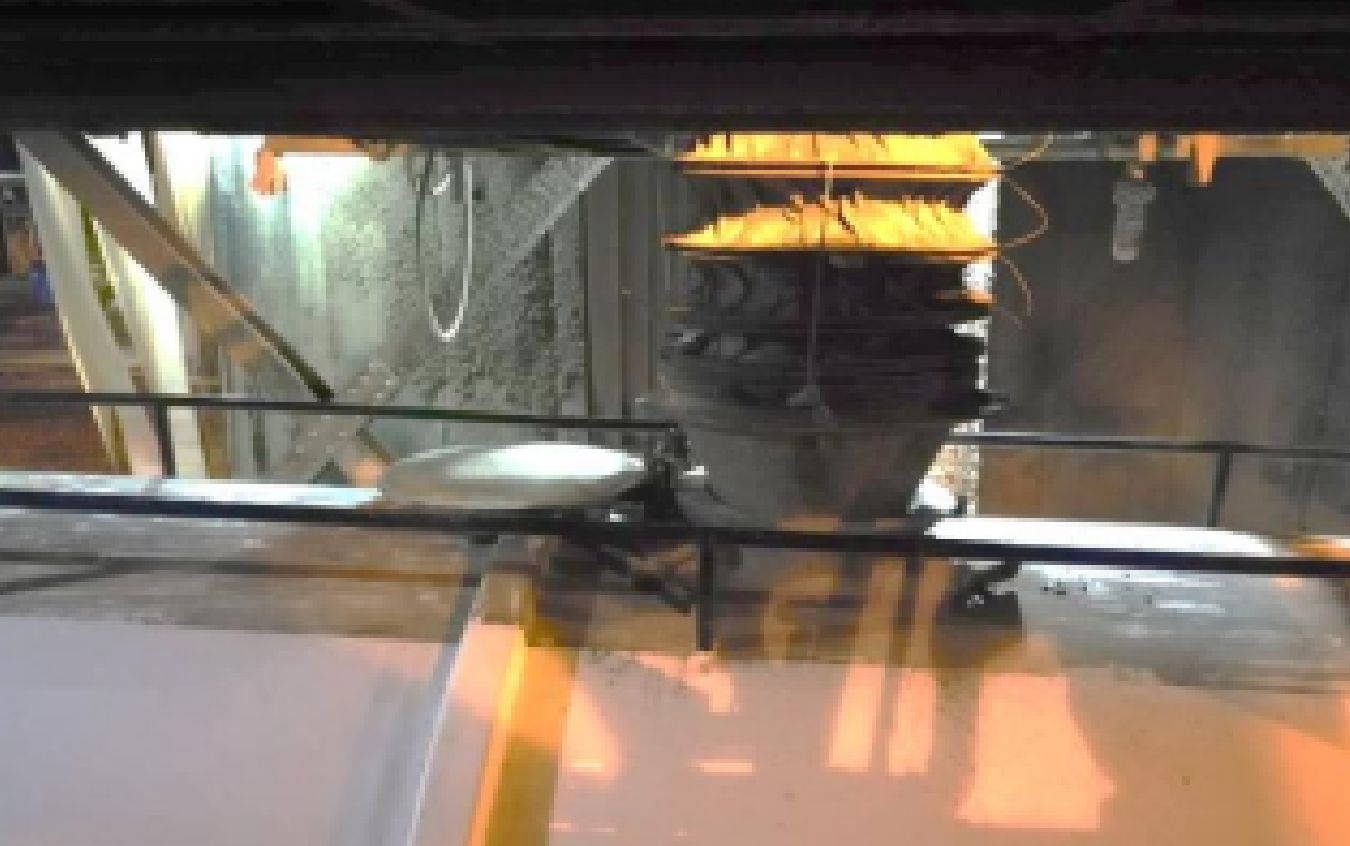
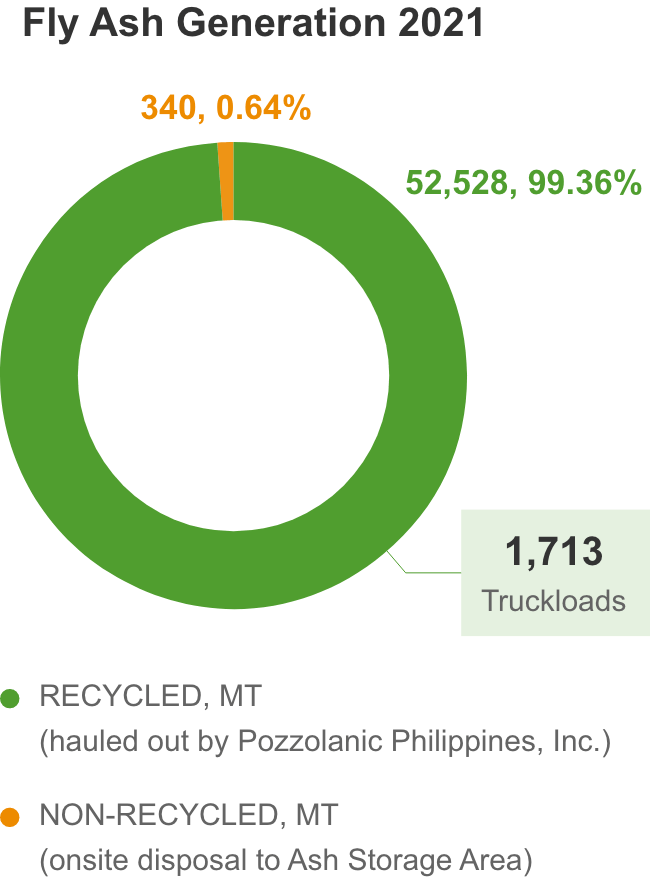
In 2021, there are
55,260.51 tons
of ash generated by the combustion of the Quezon Power Plant. 99.36% of the total ash is recycled and the rest of the ashes were taken to the landfill.
Recycling programs can help reduce the amount of fly ash and heavy ash required to landfills, thus saving limited storage space and avoiding greenhouse gas emissions up to 154,431.82 tonCO2e (as of December 31, 2021). Quezon Power Plant also uses the proceeds from the fly ash sales for community development projects.
Waste Disposal Reduction at Quezon Power Plant
In 2021, Quezon Power Plant managed non-hazardous waste by recycling waste and processing to be recycled, totalling 113.25 tons (as of December 31, 2021).
These wastes consist of Recyclable solid waste, unused concrete blocks, cutting branches donated to charcoal producers, scrap metal, food scraps donated to local communities to feed the wild boars, Plastic bottles donated for recycling and organic waste used as a precursor for composting vermicompost. These wastes accounted for 22.60% of the total non-hazardous waste processing for recycling.
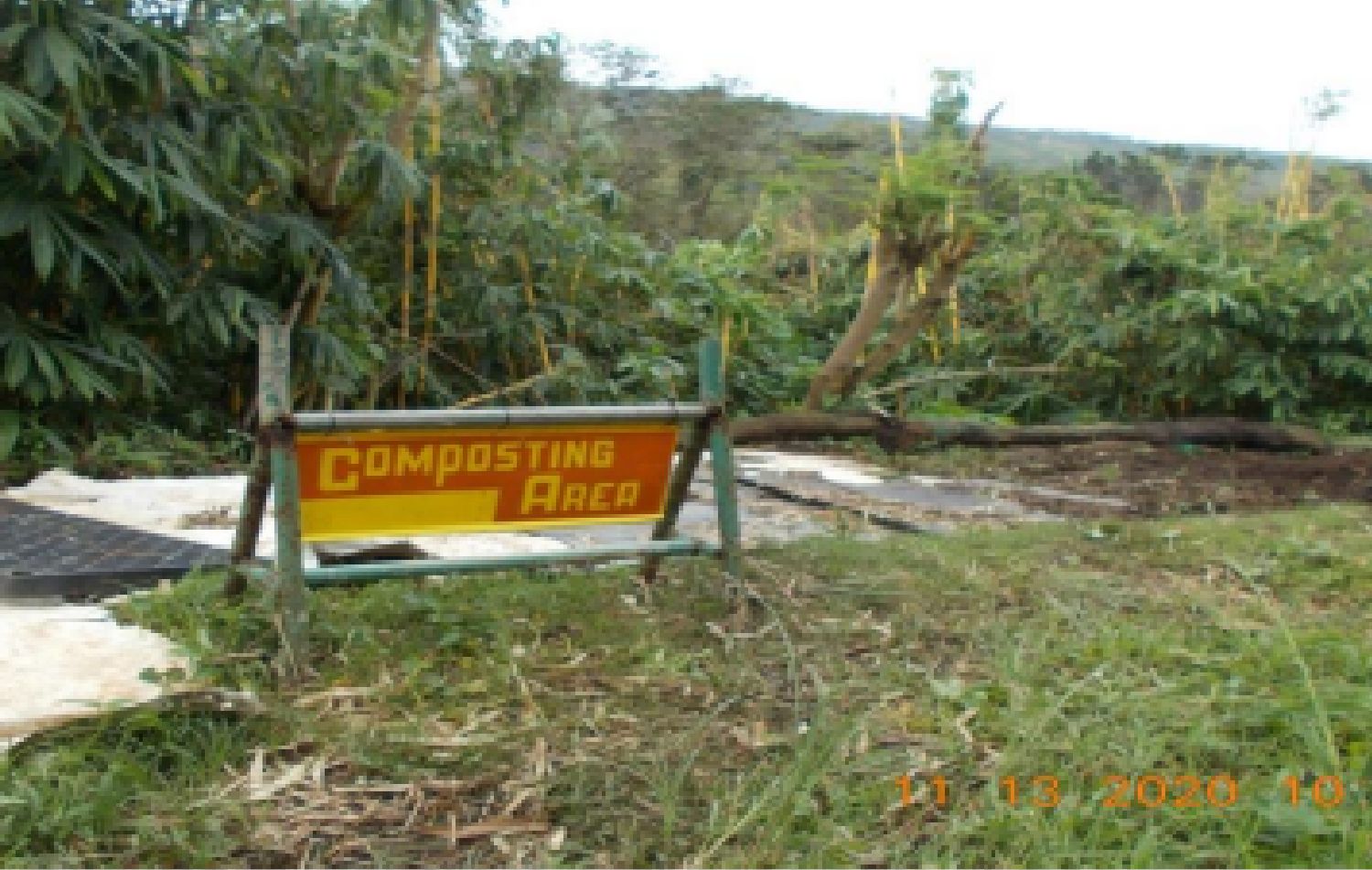
Composting Area
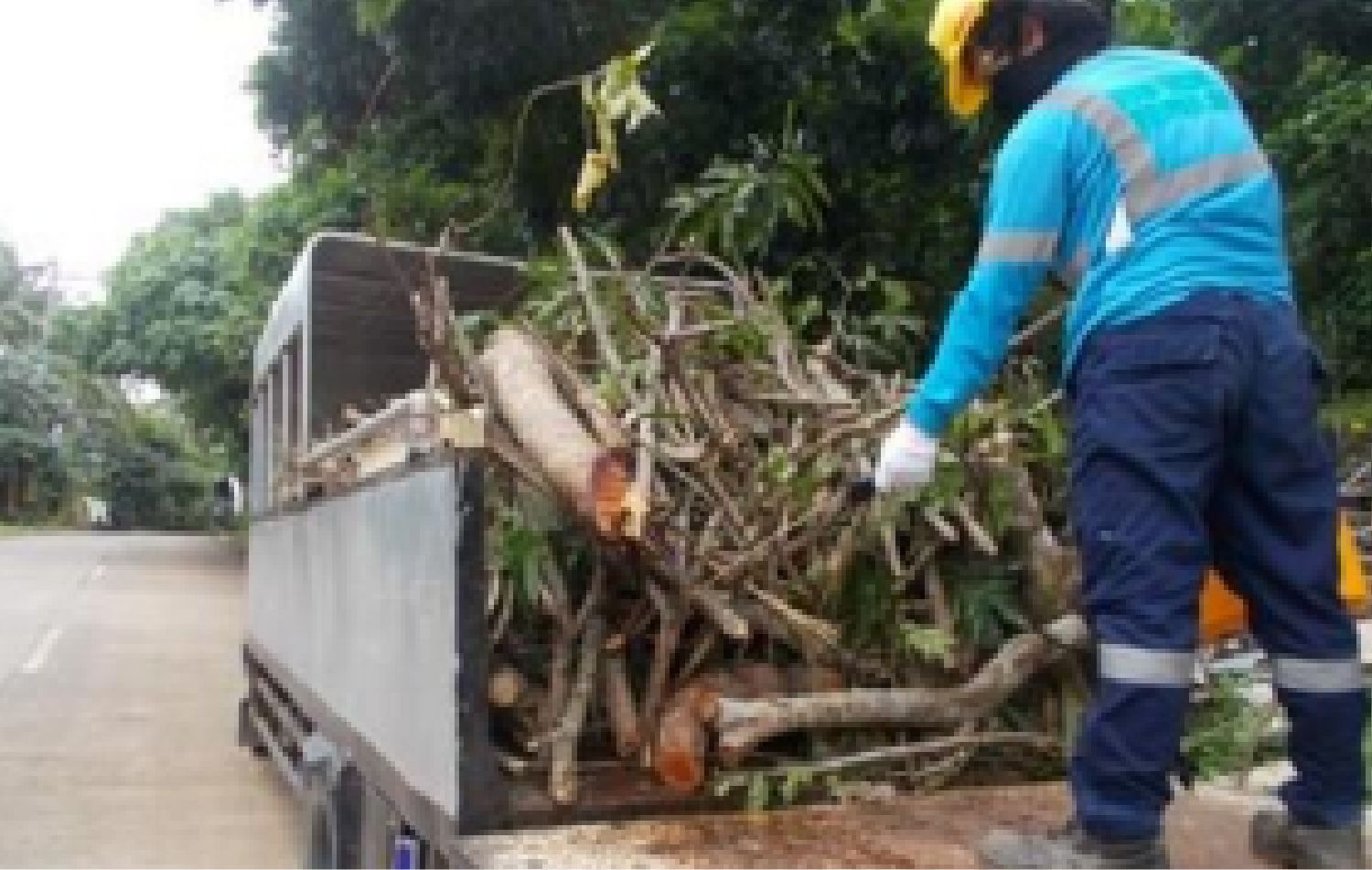
Donation of Used Woods to Charcoal Maker